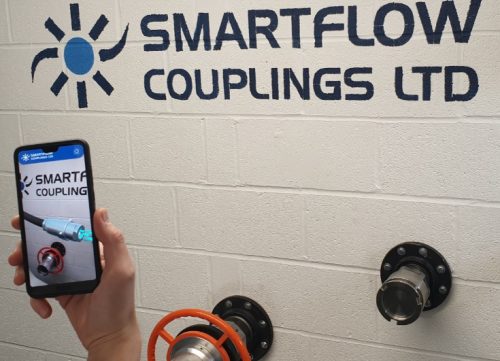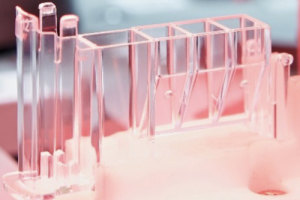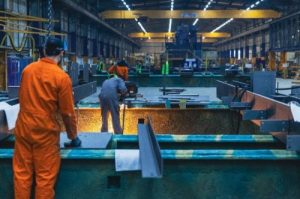Augmented reality helps firm beat Covid restrictions

A Yorkshire manufacturer is using augmented reality technology to maintain its global presence during the pandemic by bringing its latest product innovations to life.
Mechanical engineering business Smartflow Couplings, which has sites in Harrogate and Scunthorpe, develops fluid transfer products for the oil, gas and chemical sectors worldwide.
Smartflow MD Gary Thompson said the technology would support both sales and training, allowing global distributors to demo how the products work to potential clients, wherever they are based and without having to take the couplings with them.
“AR will help the international launch of our latest range of dry break couplings at a time when trade shows and international travel have been put on hold,” he said.
Smartflow has teamed up with AR experts at Clay 10 in Hessle to simulate its latest designs in the field and offshore, after the two companies were introduced through Product and Process Innovation (PAPI); an ERDF-funded project delivered by the University of York.
Clay 10 has been commissioned to develop an app which will bring Smartflow’s innovative couplings to life, by simply scanning the product’s badge with a smartphone.
Thompson added, “The app will also be a handy tool for users, where they can visualise how the products are serviced through a virtual animation and download all technical and supporting documents.
“The technology will have a vital training function as our main markets will be offshore oil platforms, vehicle fuelling stations and hazardous chemical plants where it isn’t always possible to demonstrate and learn on the job.”
Smartflow’s products are designed for use by the oil and gas industry and in situations where it is critical to avoid spills when transferring chemicals and other liquids.
The company’s latest couplings, in new sizes and materials, have recently been developed with the support of a £173,000 funding deal from Innovate UK, the UK’s innovation agency, and will be released to market later this year.
They range in size from a one-inch coupling in lightweight titanium for managing lower volume transfers of toxic and corrosive liquids up to four-inches for high volume fluid transfers for use offshore, including a cost-effective high strength carbon steel version.
Colin Poma-Young, programme manager at The University of York, said the PAPI project introduced Smartflow and Clay10 after both companies attended separate innovation workshop sessions.
He said, “Lining up that collaboration demonstrates the value our workshop participants receive and it’s so rewarding for us to play a part in innovative projects like this.”







